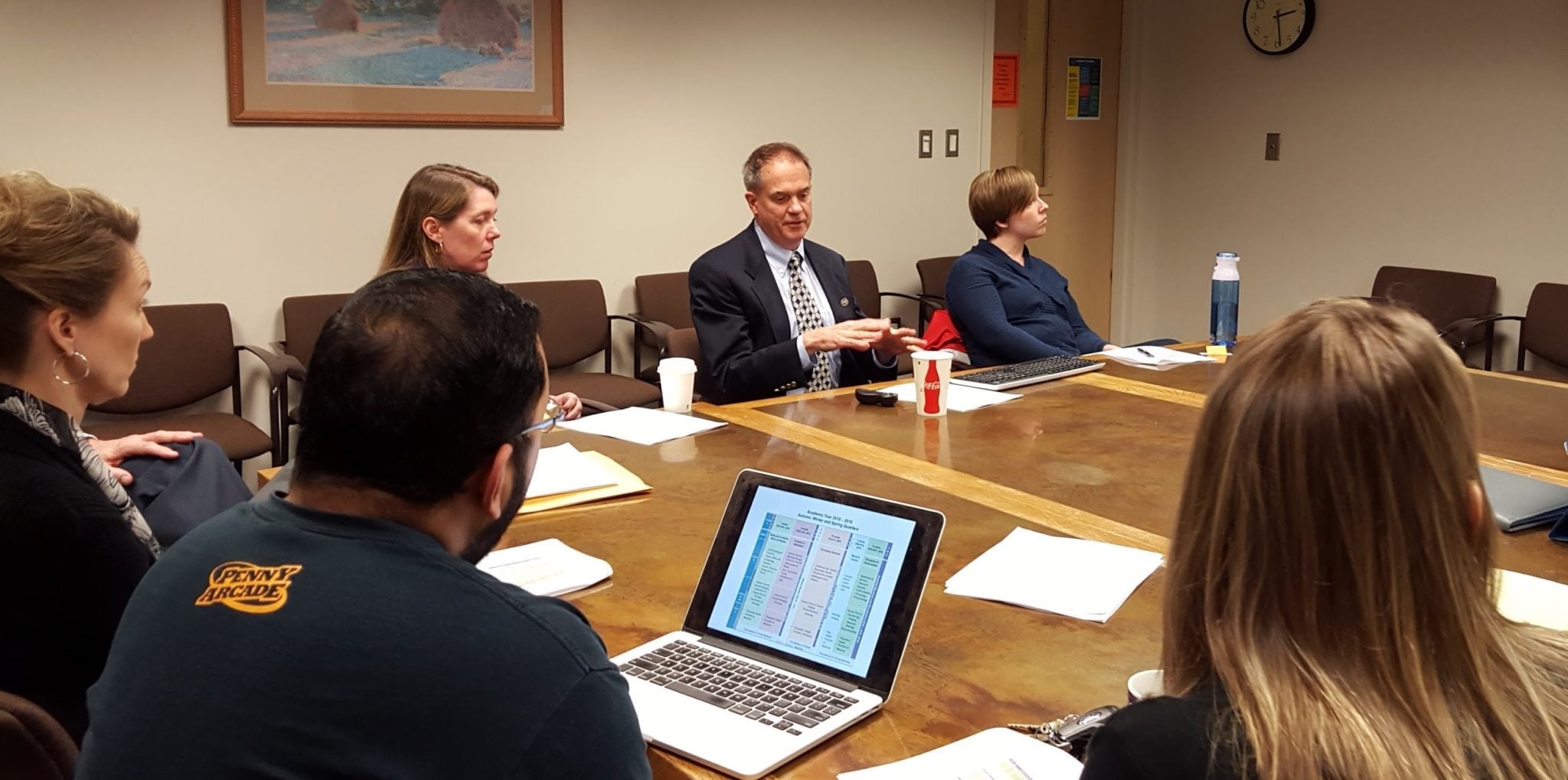
The UWSOP Curricular Innovation Guidance Team had the pleasure of hearing about the curricular changes undertaken and implemented last year by the UW School of Medicine and School of Dentistry.
If we don’t measure it, we don’t value it.
Joining us from the School of Medicine, Dr. Michael J. Ryan, Associate Dean for Curriculum, and Dr. Karen McDonough, Second-Year Program Lead, presented an overview of their old model, change process, and their new block curricular model.
Dr. Joel Berg, Dean from the School of Dentistry, shared about the School of Dentistry’s process and the new model that is closely aligned with the School of Medicine model due to relying on their foundational courses to deliver much of their basic science content.
Katie Taylor from the College of Education shared her perspective on several educational themes she heard emerge from both the School of Medicine and School of Dentistry in our discussion, paraphrased below:
- Student-centered curriculum: Changes reflect a shift toward a “student-centered” learning experience rather than allowing market forces or the “customer experience” to drive the teaching and learning objectives.
- Foregrounding/integrating practical experience: Integrate the “science content” in practical experience, with patients, from the very beginning and have support structures (i.e., faculty mentors) in place.
- Delivery through multiple modes: Lecture is only one (restricted) mode of delivering content to learners – students also have opportunities to work in small groups, do problem-solving, discussion, case studies, etc. “Effective instruction” is opening up opportunities for students to practice/use the important ideas multiple times, and via different/multiple modes of engagement.
- Educating the whole person:Just as the patient is a whole person, so are students. Students need to be prepared to be good listeners, good citizens, good caregivers, and ethical practitioners. Special sessions or topics delivered longitudinally throughout the curriculum are a couple ways of providing this focus.
- Forward-leaning curriculum around trends/unknowns: For professional schools, effective self-study skills are important, as is eliminating redundancies and anachronisms across courses and structures. Just because people can do it, do we need to teach it?